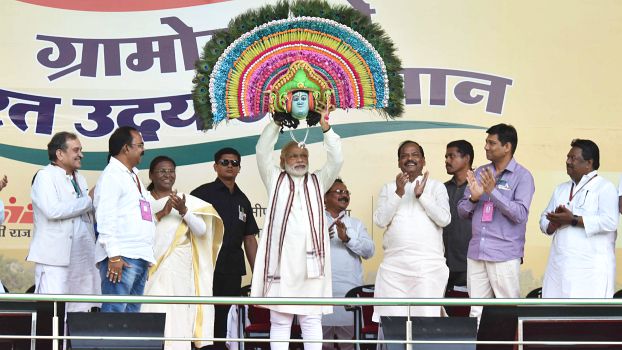
The spectacular victory of the Hindu nationalist Bharatiya Janata Party (BJP) under Narendra Modi's leadership in the 2014 elections promised "better days" (achche din in Hindi) to come. After five years, the agenda of the Modi government based on a market-friendly economic policy, muscular Hinduism, and global networking will be put to test in the forthcoming general elections to be held in seven phases in April and May 2019. With the realignment of political parties and the emergence of opposition unity, the prospects for an outright BJP victory had started looking dim the past few months. However, the terrorist attack in Pulwama, Kashmir and some early signs of opposition unity fracturing might weigh in favour of the ruling party. Despite such contingent factors, the next general election will still offer the Indian voter a choice between two competing visions of India—one based on hindutva, focused on the majority faith Hinduism—and the other, multi-cultural, secular vision of India championed by Jawaharlal Nehru, the first Prime Minister of the Indian Republic. Regardless of the outcome, despite occasional outbreaks of local violence caused by unresolved structural issues discussed in this essay, India’s electoral democracy will endure.
Subrata K. Mitra is Emeritus Professor of Political Science at the South Asia Institute, Heidelberg University. He was Director of the Institute of South Asian Studies (ISAS) and Visiting Research Professor, NUS, Singapore.